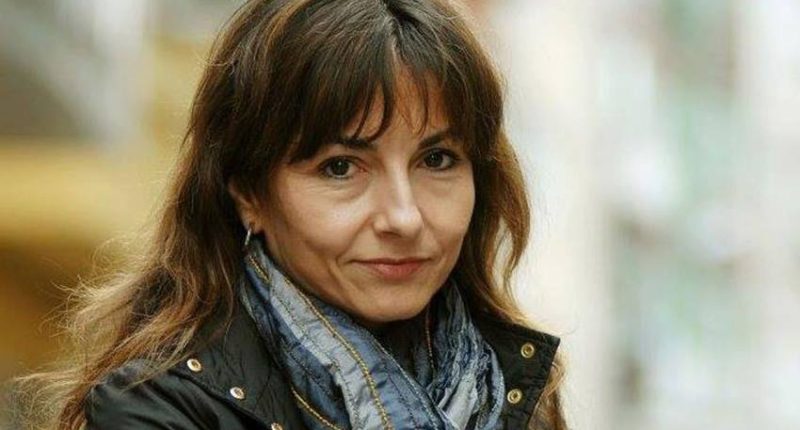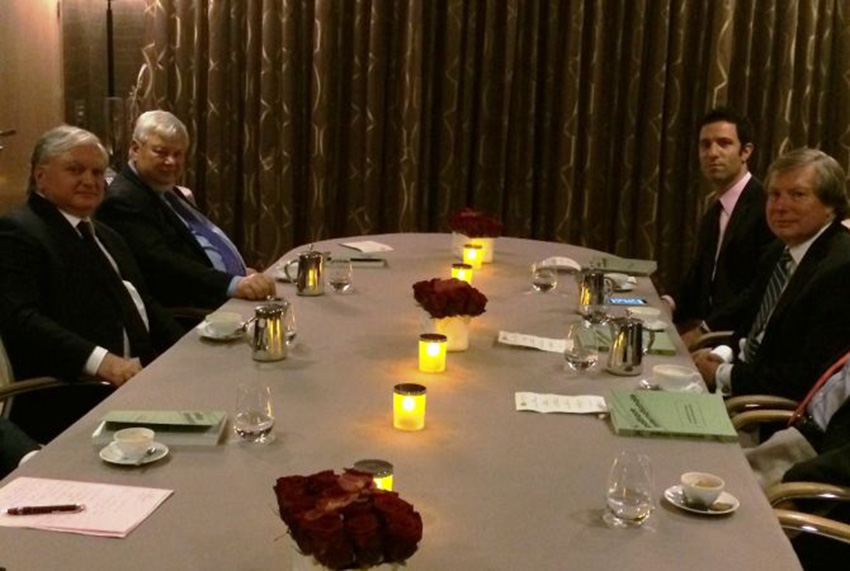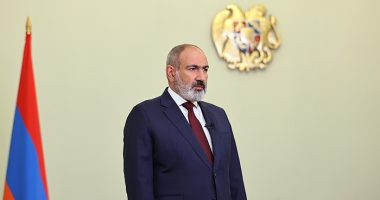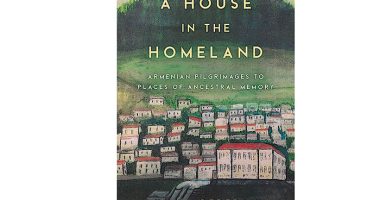By Hambersom Aghbashian
Yasemin Çongar (born on December 22, 1966 in Turkey) is a Turkish journalist and writer. She finished her High school in USA and has been a journalist since 1984 where she began to work for ANKA News Agency. While working as a Journalist, she continued her education and graduated from the Faculty of Political Sciences, Department of Economics, University of Ankara. She earned a Master degree in the field of American Studies from Georgetown University. Yasemin Çongar participated in political activities in Turkey and accused for ‘communist propaganda’. She was tried by Istanbul State Security Court and acquitted of the charge. After ANKA, she worked for ‘The Republic’ headed by Hasan Gamal, then for BBC in the early 1990s in London. She returned to Turkey and joined the team that prepared the new century newspaper. She is a former Washington bureau chief for Milliyet (1995–2007) and a founding deputy editor-in-chief of Taraf (2007–2012). She has published interviews with Orhan Pamuk, Paul Auster, novelist Salman Rushdie, also has contributed to Agos newspaper. Yasemin Çongar is the author of four books in Turkish, among them Artık Sır Değil (No More a Secret), a detailed analysis of the US diplomatic cables on Turkey first made public by WikiLeaks . Currently she is based in Istanbul and is a columnist for the Internet newspaper T24, and writes also for AlMONITOR.
LA Times wrote on January 5, 2009: Two hundred Turkish intellectuals last month launched an Internet signature campaign for an apology to Armenians for the 1915 massacres. “My conscience does not accept the insensitivity showed to and the denial of the Great Catastrophe that the Armenians were subjected to in 1915,” the brief statement reads. “I reject this injustice and for my share, I empathize with the feelings and pain of my Armenian brothers and sisters. I apologize to them.” Organizers of the “I apologize” campaign notably shied away from the word genocide, opting instead for “the Great Catastrophe,” a phrase initially used by Armenians. Still, Turkish nationalists were quick to condemn the project and launch multiple, counter we-want-an-apology campaigns). Yasemin Çongar was one of the signees. (1)
Deutsche Welle published an article on April 23, 2009, by its correspondent Dorian Jones concerning an agreement on a comprehensive framework to normalize relations between Turkey and Armenia where he mentioned that the process carries some risk for the Turkish government. He also mentioned that “Ankara now fears US president Barack Obama will do the same. During his presidential campaign Obama said he would recognize the genocide if elected. But Yasemin Çongar, deputy editor of the Turkish daily Taraf, said Obama may now hold back as a result of the new rapprochement efforts. Washington wants to see Turkey open its border with Armenia,” she said. “They want to see Ankara and Yerevan normalize diplomatic relations and there is a movement to that end. I think Obama wants to give the message to Ankara that if this process goes on it might even stop him from saying the ‘G’ word, the genocide word in Washington.” (2)
According to Armenian Genocide denying source armandsag.nl, January 11, 2009, Yasemin Çongar, who thinks Turkey should accept the (Armenian) Genocide and even pay money to the Armenians (financial reparation) or maybe even give land to them, was invited to a debate organized by the Turkish Institute in the Netherlands. The conference was about the media and censorship in Turkey. The source gave some details about the conference and the participant, and mentioned that Yasemin Çongar is part of pro-Armenian-lobby, and she is uniting all the “enemies” of Turkey. (3)
Turkish scholars, artists, and writers harshly condemned primary and middle school textbooks that are replete with anti-Armenian rhetoric in Turkey, and demanded that the books be pulled from circulation. The textbooks portray Armenians as traitors who plotted with foreign enemies to tear apart the Ottoman Empire and Turkey, and as mass murderers of innocent Turkish and Muslim women and children while Muslim men were waging a war of survival.
The textbooks, all published over the past few years and approved by a special commission of Turkey’s Ministry of Education, are also mandatory in Armenian schools in Turkey. In a statement issued in late September (2014), the signatories wrote, “After immediately pulling the ‘History’ and ‘History of the Turkish Revolution’ textbooks from circulation, apologies should be issued to all students, particularly to Armenian ones’. Yasemin Çongar was one of the signatories. (4)
_______________________________________________________
1- http://www.latimes.com/la-oe-ozyurek5-2009jan05-story.html
2- http://www.dw.com/en/turkey-and-armenia-agree-on-reconciliation-roadmap/a-4201193
3- http://www.armandsag.nl/artikelen/Leftwing%20journalists%20in%20Turkey.html
4- http://armenianweekly.com/2014/09/30/textbooks-vilifying-armenians/










